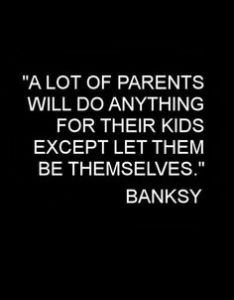By: Chris Warren
Ahhh yes it’s “the most wonderful time of the year” (or whatever cliché pleases you). The complaints are also clichés, albeit true ones: Christmas is rightfully derided as having been turned into a celebration of materialism and faux congeniality. ‘Tis the season for pining about what Christmas really means. We can also learn a lot from what it doesn’t mean.
Christmas is not about being seasonally nice. If you can smile and wave to that crabby neighbor on December 25, why is it so hard to do any other day? Or every day? Does it feel funny going back to being a stand-offish jerk on December 26? I have a coworker who is always doing small favors for everyone, even people who are not all that kind to him in return. He does not wait for a special day, or be helpful only to those who are helpful to him. He treats others with class, every person, every day. That is the true meaning of Christmas.
Christmas is not about being a part time philanthropist. People feel inclined to leave large tips or donate to charity at Christmas. That’s nice and should not be discouraged, but the wait staff at your favorite burger place needs to make money in July, too. And the burdens carried by social service groups still have to be funded in the off season. It does not help a poor man to buy him an expensive multi-course steak & seafood dinner once a year and let him starve the rest of the time. I know a guy with a very middle class income who gives to several charities each month. The donations are not large, but he always comes through with something. He does it so the poor man gets a modest but respectful meal every day. That is the true meaning of Christmas.
Christmas is not about Christ. Let’s get something out of the way: I don’t say that to be politically correct. It’s well established that Twenty First Summer does not concern itself with making sure no one’s precious sensibilities are offended. But the reality is that for many, perhaps most, Christmas is not a religious holiday even as they celebrate it anyway. Christians should seize this opportunity to share their faith because it may be the only time of the year when nonbelievers are open to hearing God’s Word. It’s important for Christians to demonstrate their faith all the time, but Christmas is prime “hunting season.”
An acquaintance of mine is very involved in his church and he invites everyone he knows to their Christmas pageant. It’s part Broadway musical, part worship service. The place is always packed, and many of those present would never consider going to church under any other circumstances, much less a very conservative Baptist church. No one really knows how many lives are changed for the better as a result of attending this one event, but the church got it right: You first have to get their attention if there is any hope at all of winning their hearts. By the way, this particular church reaches out to to the community all year long with assistance and events specifically aimed at non-members. That is the true meaning of Christmas.
Even though a lot of goodwill does come out of Christmas, the holiday has become too much about one day. The higher calling of being concerned for others during the rest of the year is usually overlooked. Or worse, everyone thinks they can be kind to their fellow man in December and they have done their duty until next year. You can tell everything about a person’s understanding of the meaning of the season by what they do (or don’t do) in February and July and October. Those who respond to that call long after the sales are over and the decorations are put away don’t merely know the true meaning of Christmas, they are the true meaning of Christmas in the spirit Christ Himself expects all of us to be.
Twenty First Summer wishes everyone a merry and blessed Christmas.
Peace be with you!






